पाठ 21 - Phrasal Verbs

In this lesson you'll learn about phrasal verbs and how to use them in the English language. Many common English phrasal verbs are included.
You'll also learn some common English words related to transportation.
A small reading passage is included to help you improve you reading comprehension.
विज्ञापन
अंग्रेजी पढ़ना
It’s 4:30 and Anna has finished work for the day. She leaves her office and walks into a warm, sunny day. The sky is blue with only a few small white clouds.
Anna walks along a large sidewalk on a busy city street. She stops at the intersection and waits for the light to turn green.
“Excuse me,” a lady with long black hair says, “Do you know where the Apollo theater is?”
Anna thinks for a moment, then says, “Walk up to the next block, then turn right. Keep going straight and you should see it after a few blocks.”
“Thank you,” the lady says.
The light turns green and Anna walks across the crosswalk along with a crowd of people. A few blocks later the stores give way to larger office buildings. She crosses a small bridge, then turns left and enters an industrial area with warehouses and small businesses.
After a few blocks the street ends at a large park. She turns left onto a path that goes into a wooded area, and eventually connects with a path that goes along the river. This part of the park is very busy with lots of cyclists and joggers on the path.
After about a kilometer, she turns right onto another path that leads out of the park and into a residential area with small houses and apartment buildings. She walks up three more blocks, turns left and she is at her apartment building.
She unlocks the door to the building and walks up a flight of stairs. She opens the door into a long hallway. She walks down the hall to the door of her apartment. She unlocks the door, walks into her apartment and sits down on her sofa, glad to be back home.
अंग्रेजी शब्दावली
| finish | |
| leave | निकलना |
| office | ऑफिस |
| walk | पैदल चलना |
| day | दिन |
| sunny | धूप |
| cloud | बादल |
| sky | आकाश |
| sidewalk | फ़ुटपाथ |
| city | शहर |
| intersection | चौराहा |
| wait for | के लिए इंतजार |
| theater | थियेटर |
| moment | |
| block | |
| turn | घुमाना |
| sees | देखना |
| crosswalk | क्रॉसवॉक |
| crowd | |
| store | दुकान |
| building | बिल्डिंग |
| cross | |
| bridge | ब्रिज, पुल |
| industrial area | |
| warehouse | गोदाम |
| business | व्यापार, |
| park | पार्क |
| wooded | |
| connect | |
| river | नदी |
| jogger | |
| residential area | |
| glad | |
| hallway |
अंग्रेजी शब्दावली - Transportation
In this section you'll learn some English words related to transportation.

 road
road

 bridge
bridge
 train tracks
train tracks

 motorcycle
motorcycle
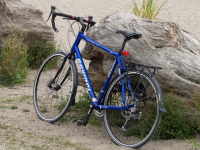
 bicycle, bike
bicycle, bike
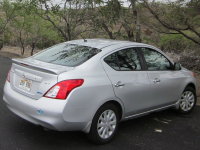
 car
car
 bus
bus
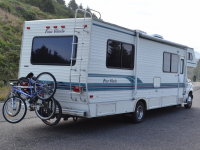
 motorhome
motorhome

 train station
train station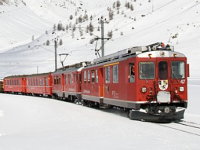
 train
train
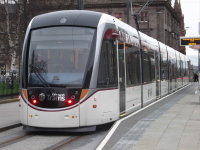
 tram
tram

 subway
subway

 freighter
freighter

 truck
truck

 plane, airplane
plane, airplane
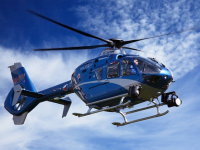
 helicopter
helicopter

 airport
airport

 boat
boat

 sailboat
sailboat

 ferry
ferry
व्याकरण - Phrasal Verbs
A phrasal verb is a compound verb made up of the following combinations:
- a verb and a preposition (pick on)
- a verb and an adverb (take off, give in)
- a verb and both an adverb and a preposition (put up with)
Verb + Adverb
Some of these phrasal verbs do not require an object.
- The birds came back.
- The dog went away.
- We sat down.
Some of these phrasal verbs require an object. For these phrasal verbs the object can usually be put after the verb or after the adverb. If the object is a pronoun, it must go between the verb and adverb.
- The children put their toys away.
- The children put away their toys.
Verb + Preposition
These phrasal verbs always have an object and the object follows the preposition. Sometimes there will be two objects. The object of the verb and the object of the preposition.
- He asked for a new drink.
- He asked the bartender for a new drink.
Verb + Adverb + Preposition
These phrasal verbs have both an adverb and a preposition. They require an object, which follows the entire phrasal verb.
- Look out for the street we need to turn at.
- I won't put up with it anymore.
Common Phrasal Verbs
Phrasal verbs are very common in English, especially in informal and spoken English. Many phrasal verbs are replaced by verbs of latin origin in more formal writing.
Phrasal verbs can be very complicated for people learning English, since the meaning of a phrasal verb cannot always be guessed by looking at the individual words. Because phrasal verbs are very common, they are very important to master for anyone who wants to be fluent in English.
here is a list of some common phrasal verbs with examples of how to use them in a sentence.
back down
- He refused to back down, even when he realized he was wrong.
be up to
- What are you up to? I'm just watching a movie.
break down
- My car broke down last night.
- The police broke down the door of their house.
carry on
- Carry on with what you're doing.
catch on
- It took me a while to understand what you were saying, but I finally caught on.
- My shirt caught on the thorns.
- The song never caught on when it was first released, but now it's a classic.
catch up with
- I'll catch up with you later.
- I can't leave yet, because I have too much work to catch up with.
come back
- I'll come back for them later.
fill in
- Fill in the form then return it to me.
- I'll fill you in later.
get back
- What time will we get back?
- We'll get back before dinner.
get in
- What time did you get in?
- Get in the car.
get out of
- He got out of the car and walked toward the house.
- How did you get out of doing your homework?
get over
- How can we get over the river.
- She just got over being sick.
get up
- What time did you get up?
- I had to get up early this morning?
- Get up from the couch. We have to go.
give away
- He gave away his old clothes.
give back
- Tomorrow I'll give you back the books I borrowed.
give up
- Don't give up!
- He gave up his seat for the injured passenger.
go away
- Why won't you just go away.
- The bear finally went away.
go on
- I'll go on working until I'm finished.
- What's going on?
go out
- We're going out now.
- They're going out for dinner.
- The fire went out.
go up
- The price of coffee keeps going up.
- Go up to the ticket booth and buy a ticket.
hold on
- Hold on tight!
- Hold on. We're almost there.
hold up
- Hold up the present so everyone can see it.
- What's the hold up. We're in a hurry.
- How's your leg holding up? It's sore, but I can still walk.
hurry up
- Hurry up or we'll be late!
keep on
- If you keep on studying, you'll pass the course.
keep out
- The fence will keep out the bears.
leave out
- Don't leave out any details.
look after
- She is looking after her brother until her parents come home.
look away
- He only looked away for a moment, but he missed the goal.
look for
- What are you looking for?
- I'm looking for my keys.
look forward to
- I look forward to meeting you.
- I'm looking forward to my vacation.
look out!
- Look out! There's a car coming!
look out for
- Look out for the potholes in the road.
look up
- The girl looked up when her mother called her.
- I had to look up her phone number before I could phone her.
- Things are looking up.
look up to
- She looks up to her older sister, and wants to be just like her.
make up
- You can't just make things up.
- He made up a terrible excuse.
- She made up a funny story.
pick up
पिक अप, उठाना
- Pick up the toys on the floor.
- I'll pick you up around seven.
pay back
- When will you pay back the money I lent you?
put away
- Put away the tools when you are done with them.
put off
- I can't put it off any longer.
- He was put off by the smell.
put on
- Don't forget to put on your jacket before you go outside.
- They put on a great show.
put out
- Put out the fire before you go to bed.
put up with
- It's so loud here! How do you put up with all the noise?
set out
- They set out on a three day hike.
set up
- I went to the bank to set up a new account.
- I spent this afternoon setting up my new computer.
stay up
- I stayed up too late last night.
- The notice stayed up for three days.
- The statue stayed up even though it was hit by a car.
take after
- He takes after his father. They both like to go hiking.
take down
- She took down the sign.
- We took down the tent in the morning.
take off
- Take off your shoes at the door.
- The plane is taking off.
- Sales of the new software are really taking off!
- I'm not going to work tomorrow. I'm taking the day off.
take on
- He took on too much work.
take up
- The furniture takes up too much room.
- Sarah took up swimming so she could improve her health.
turn out
- It turned out to be easier than I thought it would be.
turn up
- Your keys will turn up somewhere.
- Turn up the music.
work out
- We can work it out.
- We worked out for an hour at the gym.
विज्ञापन
Flashcards
Here are some flashcards to help you learn some English words related to transportation.
अभ्यास
Write between 100 and 500 words about a favorite activity or hobby.
प्रश्नोत्तरी
This quiz covers the material included in this lesson. Try the quiz as many times as you like. Once you have passed the quiz, continue to the next lesson.